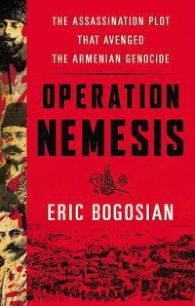The Andromeda Strain - Crichton Michael (серия книг txt) 📗
"They would serve to separate biochemical functions quite well."
"Yes," Leavitt said. He frowned.
"Something the matter?"
Leavitt was thinking, remembering something he had forgotten. A dream, about a house and a city. He thought for a moment and it began to come back to him. A house and a city. The way the house worked alone, and the way it worked in a city.
It all came back.
"You know," he said, "it's interesting, the way this one unit interlocks with the others around it."
"You're wondering if we're seeing part of a higher organism?"
"Exactly. Is this unit self-sufficient, like a bacterium, or is it just a block from a larger organ, or a larger organism? After all, if you saw a single liver cell, could you guess what kind of an organ it came from? No. And what good would one brain cell be without the rest of the brain?"
Stone stared at the screen for a long time. "A rather unusual pair of analogies. Because the liver can regenerate, can grow back, but the brain cannot."
Leavitt smiled. "The Messenger Theory."
"One wonders," Stone said.
The Messenger Theory had come from John R. Samuels, a communications engineer. Speaking before the Fifth Annual Conference on Astronautics and Communication, he had reviewed some theories about the way in which an alien culture might choose to contact other cultures. He argued that the most advanced concepts in communications in earth technology were inadequate, and that advanced cultures would find better methods.
"Let us say a culture wishes to scan the universe," he said. "Let us say they wish to have a sort of 'coming-out party' on a galactic scale- to formally announce their existence. They wish to spew out information, clues to their existence, in every direction. What is the best way to do this? Radio? Hardly- radio is too slow, too expensive, and it decays too rapidly. Strong signals weaken within a few billion miles. TV is even worse. Light rays are fantastically expensive to generate. Even if one learned a way to detonate whole stars, to explode a sun as a kind of signal, it would be costly.
"Besides expense, all these methods suffer the traditional drawback to any radiation, namely decreasing strength with distance. A light bulb may be unbearably bright at ten feet; it may be powerful at a thousand feet; it may be visible at ten miles. But at a million miles, it is completely obscure, because radiant energy decreases according to the fourth power of the radius. A simple, unbeatable law of physics.
"So you do not use physics to carry your signal. You use biology. You create a communications system that does not diminish with distance, but rather remains as powerful a million miles away as it was at the source.
"In short, you devise an organism to carry your message. The organism would be self-replicating, cheap, and could be produced in fantastic numbers. For a few dollars, you could produce trillions of them, and send them off in all directions into space. They would be tough, hardy bugs, able to withstand the rigors of space, and they would grow and duplicate and divide. Within a few years, there would be countless numbers of these in the galaxy, speeding in all directions, waiting to contact life.
"And when they did? Each single organism would carry the potential to develop into a full organ, or a full organism.
"They would, upon contacting life, begin to grow into a complete communicating mechanism. It is like spewing out a billion brain cells, each capable of regrowing a complete brain under the proper circumstances. The newly grown brain would then speak to the new culture' informing it of the presence of the other, and announcing ways in which contact might be made."
Samuels's theory of the Messenger Bug was considered amusing by practical scientists, but it could not be discounted now.
"Do you suppose," Stone said, "that it is already developing into some kind of organ of communication?"
"Perhaps the cultures will tell us more," Leavitt said.
"Or X-ray crystallography," Stone said. "I'll order it now."
Level V had facilities for X-ray crystallography, though there had been much heated discussion during Wildfire planning as to whether such facilities were necessary. X-ray crystallography represented the most advanced, complex, and expensive method of structural analysis in modern biology. It was a little like electron microscopy, but one step further along the line. It was more sensitive, and could probe deeper- but only at great cost in terms of time, equipment, and personnel.
The biologist R. A. Janek has said that increasing vision is "increasingly expensive." He meant by this that any machine to enable men to see finer or fainter details increased in cost faster than it increased in resolving power. This hard fact of research was discovered first by the astronomers, who learned painfully that construction of a two-hundred-inch telescope mirror was far more difficult and expensive than construction of a one-hundred-inch mirror.
In biology this was equally true. A light microscope, for example, was a small device easily carried by a technician in one hand. It could outline a cell, and for this ability a scientist paid about $1,000.
An electron microscope could outline small structures within the cell. The EM was a large console and cost up to $100,000.
In contrast, X-ray crystallography could outline individual molecules. It came as close to photographing atoms as science could manage. But the device was the size of a large automobile, filled an entire room, required specially trained operators, and demanded a computer for interpretation of results.
This was because X-ray crystallography did not produce a direct visual picture of the object being studied.. It was not, in this sense, a microscope, and it operated differently from either the light or electron microscope.
It produced a diffraction pattern instead of an image. This appeared as a pattern of geometric dots, in itself rather mysterious, on a photographic plate. By using a computer, the pattern of dots could be analyzed and the structure deduced.
It was a relatively new science, retaining an old-fashioned name. Crystals were seldom used any more; the term "X ray crystallography" dated from the days when crystals were chosen as test objects. Crystals had regular structures and thus the pattern of dots resulting from a beam of X rays shot at a crystal were easier to analyze. But in recent years the X rays had been shot at irregular objects of varying sorts. The X rays were bounced off at different angles. A computer could "read" the photographic plate and measure the angles, and from this work back to the shape of the object that had caused such a reflection.
The computer at Wildfire performed the endless and tedious calculations. All this, if done by manual human calculation, would take years, perhaps centuries. But the computer could do it in seconds.
"How are you feeling, Mr. Jackson?" Hall asked.
The old man blinked his eyes and looked at Hall, in his plastic suit.
"All right. Not the best, but all right."
He gave a wry grin.
"Up to talking a little?"
"About what?
"Piedmont."
"What about it?"
"That night," Hall said. "The night it all happened."
"Well, I tell you. I've lived in Piedmont all my life. Traveled a bit- been to LA, and even up to Frisco. Went as far east as St. Louis, which was far enough for me. But Piedmont, that's where I've lived. And I have to tell you-"
"The night it all happened," Hall repeated.
He stopped, and turned his head away. "I don't want to think about it," he said.
"You have to think about it."
"No."
He continued to look away for a moment, and then turned back to Hall. "They all died, did they?"
"Not all. One other survived. " He nodded to the crib next to Jackson.
Jackson peered over at the bundle of blankets. "Who's that? "
"A baby."
"Baby? Must be the Ritter child. Jamie Ritter. Real young, is it?"
"About two months."
"Yep. That's him. A real little heller. Just like the old man. Old Ritter likes to kick up a storm, and his kid's the same way. Squalling morning, noon, and night. Family couldn't keep the windas open, on account of the squalling.
"Is there anything else unusual about Jamie?"
"Nope. Healthy as a water buffalo, except he squalls. I remember he was squalling like the dickens that night.
Hall said, "What night?"
"The night Charley Thomas brought the damned thing in. We all seen it, of course. It came down like one of them shooting stars, all glowing, and landed just to the north. Everybody was excited, and Charley Thomas went off to get it. Came back about twenty minutes later with the thing in the back of his Ford station wagon. Brand-new wagon. He's real proud of it."
"Then what happened?"
"Well, we all gathered around, looking at it. Reckoned it must be one of those space things. Annie figured it was from Mars, but you know how Annie is. Lets her mind carry her off, at times. The rest of us, we didn't feel it was no Martian thing, we just figured it was something sent up from Cape Canaveral. You know, that place in Florida where they shoot the rockets?"
"Yes. Go on."
"So, once we figured that out good and proper, we didn't know what to do. Nothing like that ever happened in Piedmont, you know. I mean, once we had that tourist with the gun, shot up the Comanche Chief motel, but that was back in '48 and besides, he was just a GI had a little too much to drink, and there were exterminating circumstances. His gal run out on him while he was in Germany or some damn place. Nobody gave him a bad time; we understood how it was. But nothing happened since, really. Quiet town. That's why we like it, I reckon."
"What did you do with the capsule?"
"Well, we didn't know what to do with it. Al, he said open 'er up, but we didn't figure that was right, especially since it might have some scientific stuff inside, so we thought awhile. And then Charley, who got it in the first place, Charley says, let's give it to Doc. That's Doc Benedict. He's the town doctor. Actually, he takes care of everybody around, even the Indians. But he's a good fella anyhow, and he's been to lots of schools. Got these degrees on the walls? Well, we figured Doc Benedict would know what to do with the thing. So we brought it to him.



